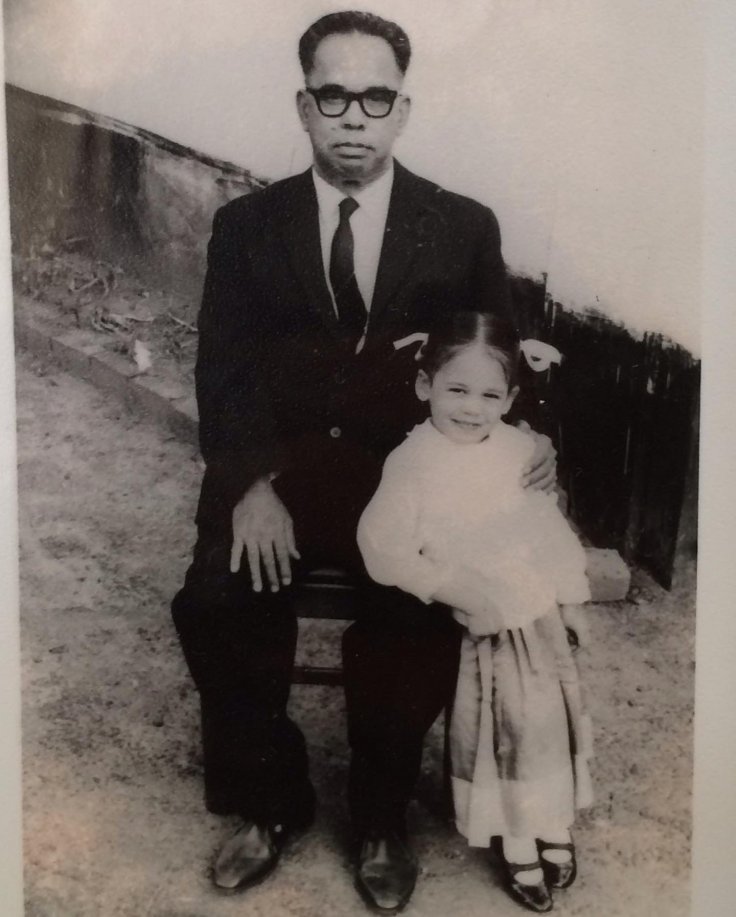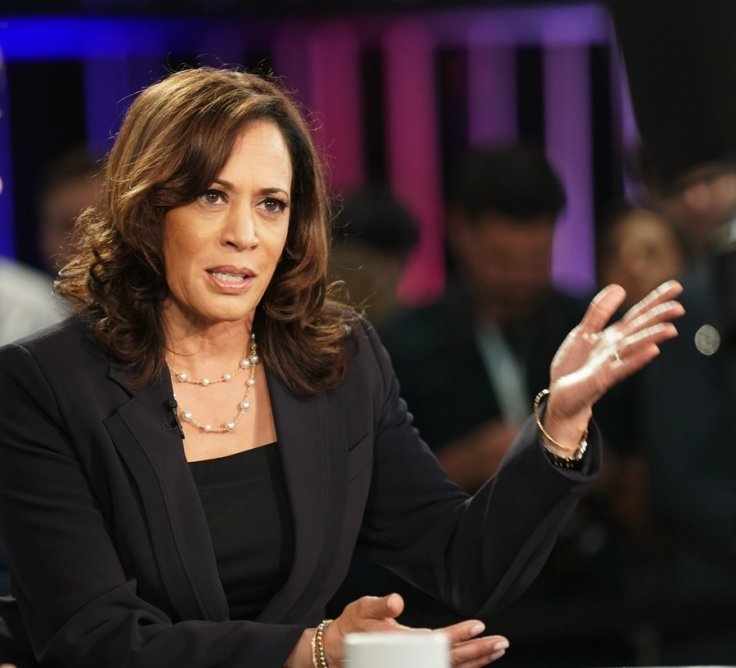In a few days, millions of Americans will decide the future course of Democratic Senator Kamala Harris. Whether she enters the White House as the first woman Vice President or remains a progressive politician remains to be seen but PV Gopalan might have already shaped her future.
While Harris has often given credit to her mother Shyamala Harris for her values, Gopalan, her maternal grandfather, had played an influential role in her political career, more than her father Donald J Harris.
It was Gopalan, who until his death in 1998, imparted values of human rights, public service and social justice in Harris' life. While her mother was the guiding figure in her life, Harris said she was influenced a lot by Gopalan's progressive views.
When Harris used to visit her grandfather in India every other year, Gopalan took her on morning walks on the Elliot beach of the southern Indian city of Chennai talking about social reforms, women's rights and civil rights. The bond was not just limited to visits. When they were away, letters kept a young Harris' mind occupied with thoughts of doing good for the people.

"My grandfather was really one of my favorite people in the world. He and his friends would debate and discuss with incredible passion the importance of a democracy and I would listen," the California senator said. "They taught me that when you see injustice in the world, you have an obligation to do something about it."
Who is PV Gopalan?
Gopalan, born in 1911 in Painganadu village in then Madras (now Tamil Nadu), joined the British Imperial Service in 1930. Harris said Gopalan was part of a group in the 1940s that wanted the British to quit India but had never expressed his views in public because of his job. However, the claim has been disputed by her family members.
The British rule would eventually end in 1947 and Gopalan would rise through the ranks and travel to cities like New Delhi, Mumbai, Kolkata to serve in various roles in the newly formed Indian government. He served as the Under Secretary in the Indian Ministry of Transport and became the Joint Secretary to the Ministry of Labor, Employment and Rehabilitation.

Gopalan devoted his life to honest public service, steering away from corruption. While posted in Mumbai as a commercial officer, he wouldn't allow anyone to accept parcels at home, fearing that they might be sent by someone paying bribes. Strangers were strictly not allowed to enter the house.
Days in Zambia
However, it was his days in Zambia that had played a big role in what he taught Kamala later. When Zambia attained independence from British rule in 1964, it saw an influx of refugees from Rhodesia (now Zimbabwe). Gopalan was sent to Lusaka, Zambia by the Indian government to help manage the crisis. This was the time when Harris and Gopalan grew closer. Harris spent time in Lusaka at her grandfather's house with her family.
"My grandfather felt very strongly about the importance of defending civil rights and fighting for equality and integrity," Kamala once said. "I just remember them always talking about the people who were corrupt versus the people who were real servants."
I was sent this from Tamil Nadu where our Indian family is from. It says “PV Gopalan’s granddaughter is victorious.†I knew my great grandfather from our family trips to Chennai when I was young—he was a big figure for my grandma and I know they’re together somewhere smiling now. pic.twitter.com/WuZiKimmqj
— Meena Harris (@meenaharris) August 16, 2020
Progressive Mindset
Behind Harris' progressive mindset and policies, it was her grandfather who played a key role. Despite hailing from a conservative Hindu Tamil Brahmin family, Gopalan never opposed Shyamala's desire to study in the U.S. In 1958, at just 19 years of age, Shyamala traveled to the U.S. to get admission in the UC Berkeley for a master's program in nutrition and endocrinology.
In those days in India, it was not common for unmarried Indian women to travel abroad for studies — that too from a middle-class family. But Gopalan said, "if you get admission, you go."
"It was a big deal. At that time, the number of unmarried Indian women who had gone to the States for graduate studies — it was probably in the low double digits," G Balachandran, Harris' uncle, and an academic in New Delhi, told the LA Times. "Shyamala was quite definitely influenced by my father, and she in turn had a great influence on Kamala."
As Harris often talks about progressive policies, the family values that her mother and grandfather instilled will continue to shape her policies in the future. From her stance on gun law reforms to legalizing marijuana, all of that indicates going against the tide for the greater good.









